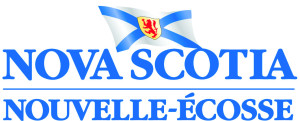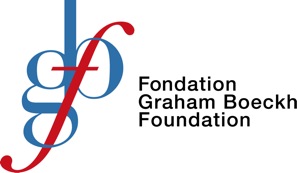Can scientific research offer practical help to caregivers
and our loved ones? You bet it can. I have the privilege of sitting on the board
of Kids Brain Health Network, or KBHN – a member of the Canadian Networks of Centres of Excellence supporting research
in the area of childhood neurodevelopmental disability such as cerebral palsy, autism and fetal alcohol spectrum disorder, to name a few.
The ‘network’ part of KBHN means that research knowledge gets shared to other academic areas and also to families. There are two great benefits of research I’d
like to share with you today: knowledge and participation:
KNOWLEDGE AND INFORMATION
Knowledge is power. The more you know about your loved one’s health condition, the more you can control your family wellbeing and your daily life. Google is a caregiver’s best friend, but so is your local hospital research team or university research institute. The trend today is toward ‘non-categorical’ research – a term which means simply that effective strategies in the treatment of particular diagnoses such as autism can be shared and applied to others with similar symptoms but different diagnoses. Ask your treatment team or even your GP what research might be going on locally that could benefit your family.
PARTICIPATION AND PARTNERING
As a family member, you have the opportunity to both participate and to partner in research. What's the difference? Participants are the research subjects - you may be asked to fill in forms, speak with researchers in recorded interviews or to participate in a particular treatment program trial. Partners in research do more - they advise both what is studied and how it is studied. Family advisors in research work alongside scientists every step of the way. We are the experts in our loved ones and in our disability or disease community. Parent partners may offer to tell other families and the community at large about the research project on social media by acting as a public 'Ambassador' for the study. Researchers will match their project needs to the skills and interests of their parent partners.
As a family member, you have the opportunity to both participate and to partner in research. What's the difference? Participants are the research subjects - you may be asked to fill in forms, speak with researchers in recorded interviews or to participate in a particular treatment program trial. Partners in research do more - they advise both what is studied and how it is studied. Family advisors in research work alongside scientists every step of the way. We are the experts in our loved ones and in our disability or disease community. Parent partners may offer to tell other families and the community at large about the research project on social media by acting as a public 'Ambassador' for the study. Researchers will match their project needs to the skills and interests of their parent partners.
If participating in a research study interests you most, ask your specialist or even GP if there are any research projects that you could join. Check relevant departments in your local university, too. Enquire about what kind of benefits you might
gain from participating but ask about obligations and risks, as well. Sometimes, research subjects are paid for
participating. But an the more important and surprising benefit of research participation is
the improvement in relationships with members of your treatment team. Clinicians who are aware of the research and may even participate in it with you will get know you
and your loved one better. Because they have a personal and sometimes vested interest in the project, they are more likely to give you their undivided attention.
Where long wait lists exist for
specialized treatment, sometimes a way to ‘jump the queue’ is to volunteer to
participate in a research study. An
added bonus is that often, research participants are given a cash stipend for
their efforts. Those important benefits aside, most families report that their primary motivation to partner on or participate in research is to help other families and contribute to the knowledge bank of their child's disability. There's deep satisfaction in that altruistic contribution.
If you would like to have impact in childhood neurodevelopmental disability research NOW, click HERE!
If you would like to have impact in childhood neurodevelopmental disability research NOW, click HERE!
Kids Brain Health Network funds lots of interesting research projects that
will have practical and positive impact on the lives of children and families
living with disability. Here are two
examples:
Strongest Families Institute is a not-for-profit corporation providing evidence-based services to children and families seeking help for mental health and other issues impacting health and well-being. We provide timely care to families by teaching skills through our unique distance coaching approach – supporting families over the phone and Internet in the comfort and privacy of their own home. Strongest Families provides family-centered care that is customized to their needs.
Parenting the Active Child – Behaviour Difficulties Program (3-12 years of age):This program helps parents learn to deal with common childhood behaviour problems such as temper outbursts, not listening, verbal and physical aggression and difficulties paying attention. The program provides parents with a manual, DVD, behaviour chart for home, daily report card for the school and weekly telephone support from a coach. This program is now available in French thanks to the Nova Scotia Department of Health and Wellness.
Chase Worries Away – Anxiety Program (6-17 years of age):
This program educates parents and children about anxiety and guides them as they learn relaxation skills and how to face worry in real life. The program typically deals with difficulties separating from loved ones, worry about performance, and specific fears. This program provides parents and children with manuals, a DVD, relaxation audio clips, daily worry diary and weekly telephone support from a coach. *Coming soon* This program will be available in French thanks to the Graham Boeckh Foundation.

This program educates parents and children about anxiety and guides them as they learn relaxation skills and how to face worry in real life. The program typically deals with difficulties separating from loved ones, worry about performance, and specific fears. This program provides parents and children with manuals, a DVD, relaxation audio clips, daily worry diary and weekly telephone support from a coach. *Coming soon* This program will be available in French thanks to the Graham Boeckh Foundation.

Dry Nights Ahead – Nighttime Bedwetting (5-12 years of age) *Dependent on funding:
This program helps children overcome bedwetting with the use of a urine alarm, reward system, and weekly telephone support from a coach.
This program helps children overcome bedwetting with the use of a urine alarm, reward system, and weekly telephone support from a coach.
Chase Pain Away – Recurrent Headache/Abdominal Pain (9-16 years of age) *Dependent on funding:
This program focuses on teaching stress management, avoidance of triggers, dietary modifications, appropriate use of
over-the-counter medication, and with weekly telephone support from a coach.
This program focuses on teaching stress management, avoidance of triggers, dietary modifications, appropriate use of
over-the-counter medication, and with weekly telephone support from a coach.
CHECK OUT WHAT STRONGEST FAMILIES SUPPORT LOOKS LIKE!
Strongest Families is now researching how its supports work across the spectrum of childhood developmental disabilities. The current Strongest Families study is part of CHILD-BRIGHT, a new Canadian networked research project with huge potential to make a positive difference for children and families now and in the future. Check it out!
· A team of psychologists, nurses and physician - many of them
parents themselves - developed the Better Nights, Better Days sleep treatment
program and will be measuring its success.
· Better Nights, Better Days is a
distance-treatment program, delivered online on a mobile-friendly website. It's
based on behavioural principles - increasing and encouraging positive
behaviours that will help children learn to settle down more quickly at bedtime
and achieve a better quality of sleep throughout the night. As a child's sleep quality
improves, their entire quality of life improves around the clock, including
behaviour, mood, and school performance.
We know that research benefits our loved ones with illness and disability in the long run. But it can have immediate, positive impact on our lives when we participate or partner on research projects, too.

No comments:
Post a Comment